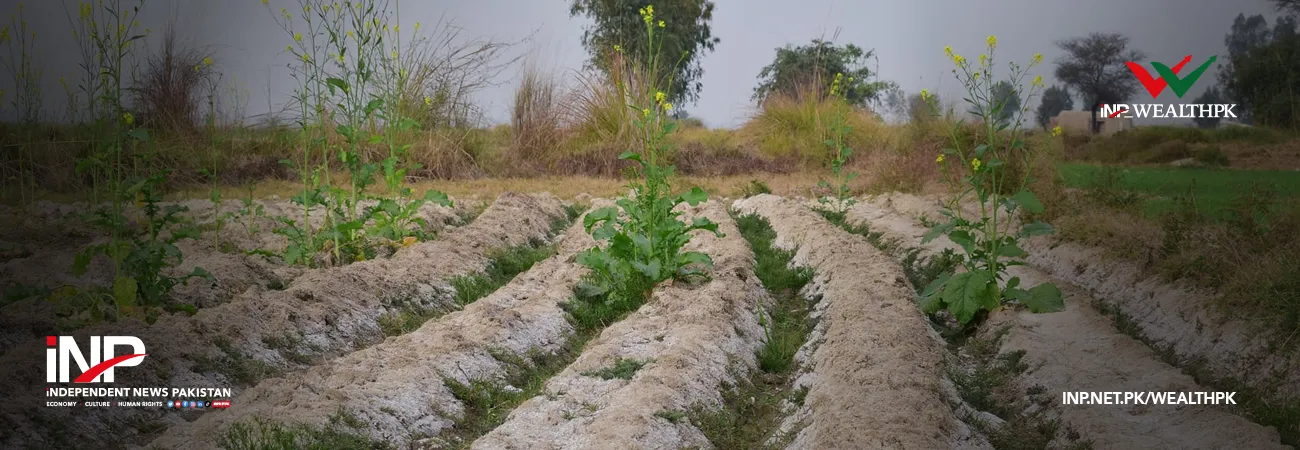INP-WealthPk
Ahmed Khan Malik
The Sindh government has embarked upon implementing Salinity Control and Reclamation Programme (SCARP) to improve the province’s irrigation system. Sindh has one of the largest irrigation systems in the country but it faced colossal losses during the 2022 super floods. “The government has introduced many projects for upgradation of the irrigation system to improve the rural economy,” Mustafa Shah, Director of Sindh Agriculture Department, said. He said that a significant amount of Rs25.703 billion had been kept in the budget for the purpose. “It included allocation of Rs900 million for silt clearance, Rs5 billion for overall repair and maintenance of the system, and Rs750 million for SCARP.” Mustafa said the Sindh province served as the drainage line for the entire country due to its flat topography. “However, the region faces significant challenges related to water-logging and salinity, which adversely affect agricultural lands and crop yields.” “To address the twin problems of water-logging and salinity, SCARP project has been initiated in various parts of the country. It is also being implemented in Sindh through the irrigation department.” Saeed Nawaz Shah, consultant at SCARP, said various drainage arrangements were being utilised to combat water-logging and salinity effectively and reclaim salt-affected lands.
“There are mainly three types of drainage arrangements employed – tubewells, surface drains and pumping stations.” He said the projects would help enhance agricultural productivity and promote sustainable land use practices. Nawaz said SCARP was a type of irrigation project aimed at addressing salinity and water-related issues in agricultural lands. “The main objectives of SCARP are lowering and maintaining water table below the root zone.” He said excessive water in the root zone could lead to waterlogging, which negatively affects plant growth and causes salinity problems. “Salinity refers to the accumulation of salts in the soil, which can be detrimental to crop growth,” he said, adding that the SCARP project employed various techniques to leach and remove excess salts from the soil, making it suitable for agricultural activities. The SCARP consultant said that such projects also supplemented irrigation supplies by tapping into underground water sources that were suitable for irrigation purposes. “By utilising such water, we can supplement existing irrigation supplies and ensure a consistent water source for agriculture.” “The SCARP project creates favourable conditions for agriculture. This, in turn, allows farmers to intensify cultivation and potentially increase crop yields and agricultural productivity.”
Credit: INP-WealthPk













